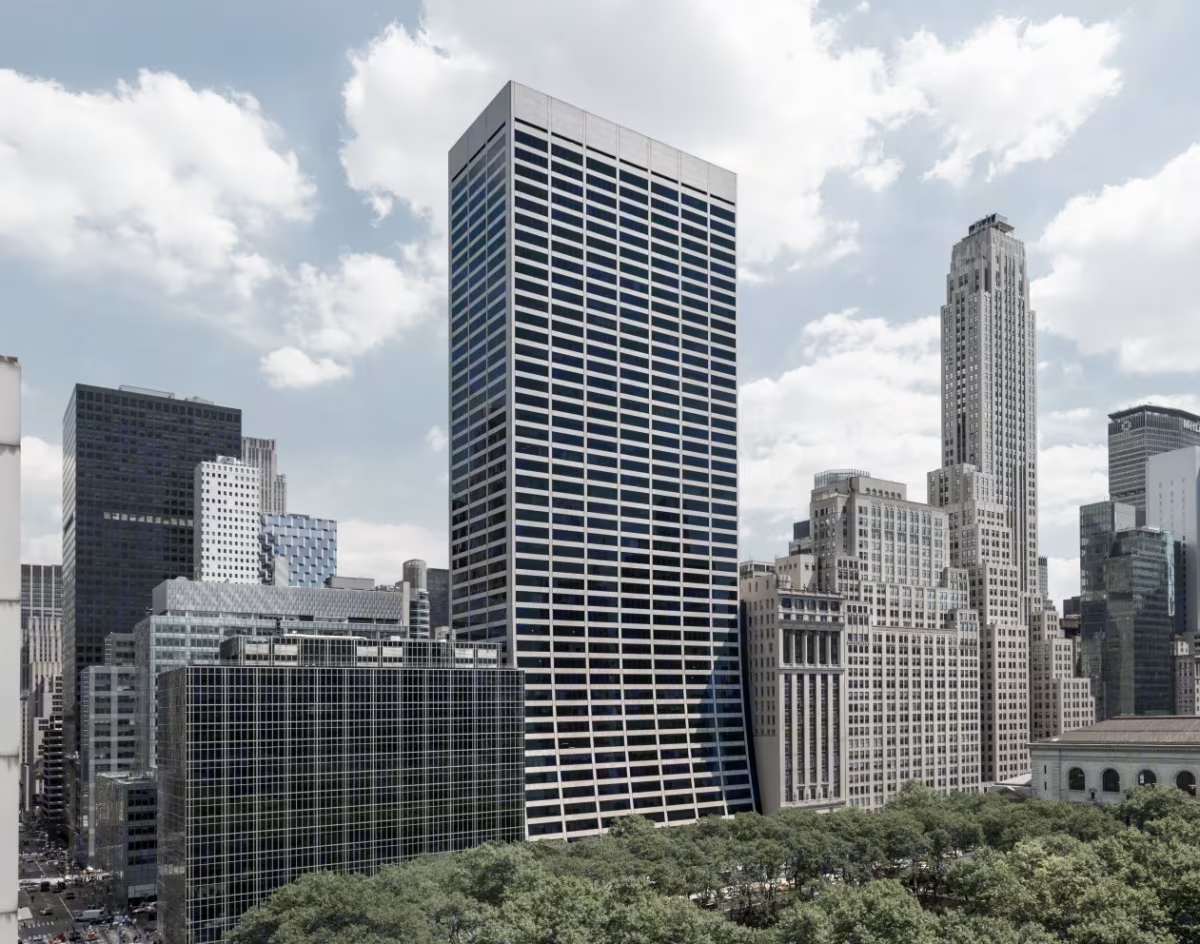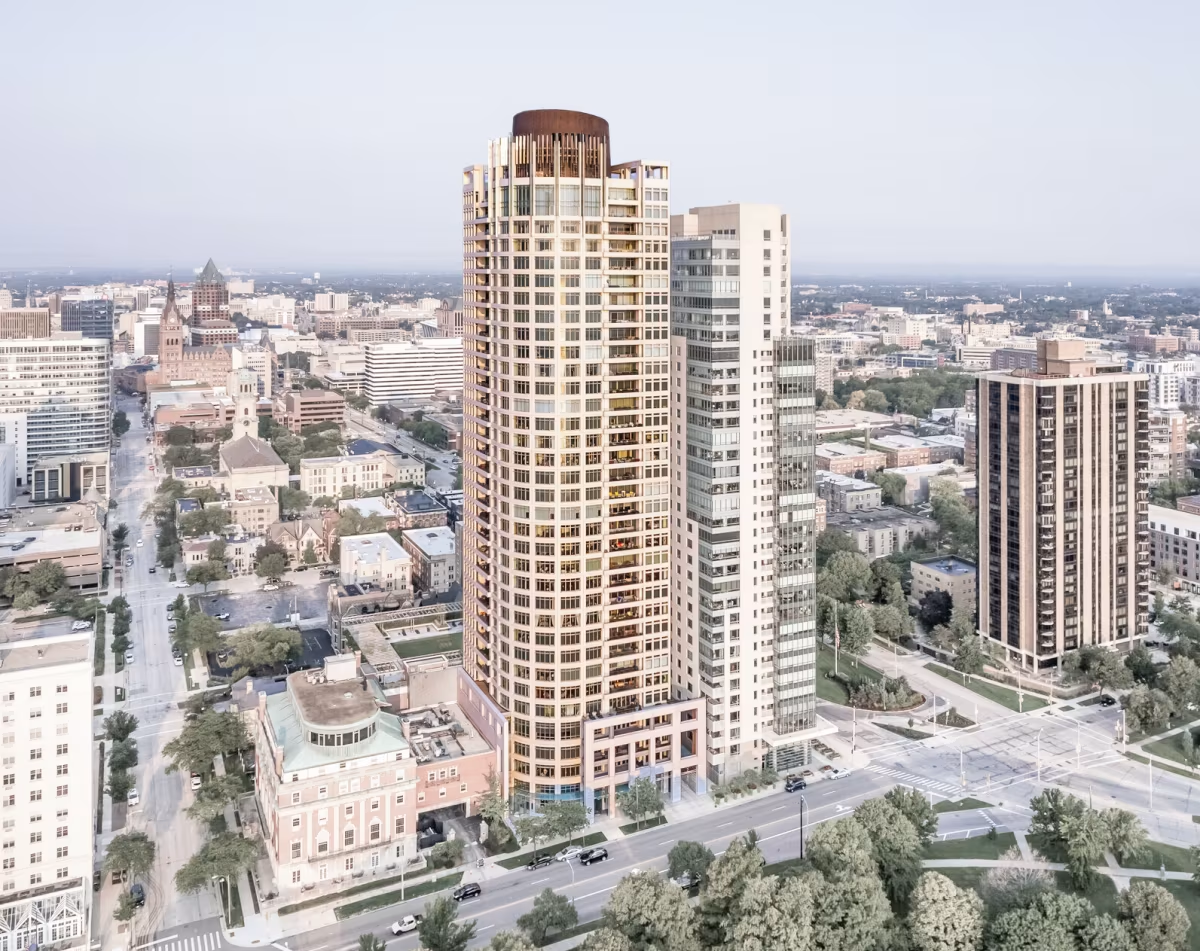W. R. Grace Building vs University Club Tower


Comparing the W. R. Grace Building and the University Club Tower is compelling because they were both designed by Skidmore, Owings & Merrill, yet they stand in different cities (New York, NY and Milwaukee, WI), and were completed over two decades apart.
What this will allow us to see, is how the same firm's approach adapted to different places in different periods of time.
Height & Size
The W. R. Grace Building is clearly the larger tower of the two, both in terms of height and number of floors. It rises to 630ft (192m) with 50 floors above ground, while the University Club Tower reaches 446ft (136m) with 34 floors above ground.
Of course, each project may have faced different briefs or regulatory constraints, which we don't really know about and could also explain the outcome.
Architectural Style
The W. R. Grace Building was designed in the International Style style, while the University Club Tower reflects the principles of Contemporary.
The W. R. Grace Building represents a late expression of the International Style, a style already in decline in 1974 when it was completed. By contrast, the University Club Tower followed the then mainstream Contemporary, embodying the dominant architectural direction of its time.
With 33 years between them, the comparison also reflects how quickly architectural priorities can shift from one dominant language to another.
Uses
The W. R. Grace Building is primarily commercial, while the University Club Tower is primarily residential.
The University Club Tower offers 53 residential units.
Both towers provide significant parking capacity, with W. R. Grace Building offering 185 spaces and the University Club Tower offering 106.
Structure & Facade
Both towers share the same structural solution, a Frame system.
A frame structure uses a grid of columns and beams to carry the building's loads. This frees the walls from structural duties, allowing for flexible floor plans and larger windows.
However, when it comes to the facade, both buildings use different approaches. The W. R. Grace Building uses a Curtain Wall facade, while the University Club Tower uses a Modular facade.
A Curtain Wall facade like the one seen in the W. R. Grace Building uses a lightweight glass curtain wall hung from the structure, while a modular facade like the one seen in the University Club Tower employs prefabricated panels, often mixing solid surfaces with smaller windows.
| W. R. Grace Building | University Club Tower | |
|---|---|---|
| Skidmore, Owings & Merrill | Architect | Skidmore, Owings & Merrill |
| 1970 | Construction Started | 2004 |
| 1974 | Year Completed | 2007 |
| International Style | Architectural Style | Contemporary |
| Commercial | Current Use | Residential |
| 50 | Floors Above Ground | 34 |
| 2 | Floors Below Ground | 1 |
| 192 m | Height (m) | 136 m |
| Frame | Structure Type | Frame |
| Steel | Vertical Structure Material | Reinforced Concrete |
| Concrete, Steel | Horizontal Structure Material | Reinforced Concrete |
| No | Facade Structural? | Yes |
| Glass, Stone, Steel | Main Facade Material | Concrete, Glass |
| Brookfield Properties | Developer | Mandel Group |
| NY | State | WI |
| New York | City | Milwaukee |
| 1114 6th Avenue | Address | 825 N Prospect Ave |